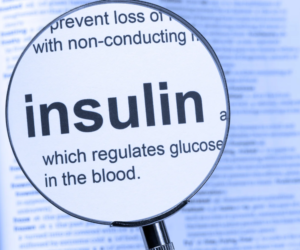Belly fat is not just a passive storage of extra calories; it acts as an active organ that can have serious health consequences. Often, people focus solely on the cosmetic aspects of reducing belly fat, but understanding its deeper impact on your health is crucial. Let’s explore how belly fat contributes to various health issues and learn some specific, often overlooked techniques to manage it effectively.
Increased Risk of Insulin Resistance
Belly fat is closely linked to insulin resistance, a condition where your cells become less responsive to insulin, leading to higher blood sugar levels and potentially resulting in type 2 diabetes. To combat insulin resistance, consider incorporating foods with a low glycemic index into your diet, such as legumes, nuts, and whole grains.
Additionally, maintaining stable blood sugar levels can be achieved through regular physical activity, such as brisk walking or cycling, which helps improve insulin sensitivity.
Immune Imbalances
Excess belly fat can disrupt your immune system, making it less effective and increasing your susceptibility to infections and illnesses. Strengthening your immune system can be supported by adding fermented foods like kimchi, sauerkraut, and kefir to your diet, which are rich in probiotics that support a healthy gut microbiome. Regular consumption of these foods can enhance your body’s natural defense mechanisms, making you more resilient to common illnesses.
Additionally, incorporating antioxidant-rich foods like berries, citrus fruits, and leafy greens can help boost your immune response. Ensuring adequate sleep and managing stress through practices like meditation or yoga also play crucial roles in maintaining a robust immune system.
Increased Estrogen and Estrogen Dominance
Belly fat can lead to an increase in estrogen levels, creating an imbalance that can cause various health issues, including estrogen dominance. Including cruciferous vegetables such as broccoli, cauliflower, and Brussels sprouts in your meals can help balance estrogen levels in the body. These vegetables contain indole-3-carbinol, a compound that supports the detoxification of excess estrogen, promoting hormonal balance and reducing related symptoms.
Increased Aromatase Activity
Belly fat increases the production of aromatase, an enzyme that converts testosterone into estrogen, leading to hormonal imbalances. Incorporating foods rich in zinc, like pumpkin seeds and oysters, can inhibit aromatase activity and help maintain hormonal balance. Also, ensuring adequate zinc intake can support immune function and improve overall metabolic health.
Androgen Imbalances and PCOS in Women
Excess belly fat can disrupt androgen levels, contributing to conditions like Polycystic Ovary Syndrome (PCOS) in women, which can cause irregular menstrual cycles, acne, and excess hair growth. Spearmint tea has been shown to have anti-androgen properties and can be beneficial for women with PCOS. Drinking it regularly may help manage symptoms and improve hormonal health, reducing the impact of PCOS on daily life.
Further, natural supplements like inositol and adaptogenic herbs can support hormone balance and alleviate PCOS symptoms. If you are dealing with PCOS, feel free to reach out to discuss additional natural recommendations tailored to your needs.
Decreased Growth Hormone Production
High levels of belly fat can lower the production of growth hormone, which is essential for tissue repair, muscle growth, and overall health. Engaging in high-intensity interval training (HIIT) and strength training exercises can boost growth hormone levels naturally. These exercises not only help maintain muscle mass but also enhance overall metabolic rate, supporting long-term weight management.
Increased Oxidative Stress and Lowered Glutathione
Belly fat can increase oxidative stress in the body, reducing levels of glutathione, a powerful antioxidant that protects cells from damage. Consuming foods rich in sulfur, such as garlic, onions, and cruciferous vegetables, supports glutathione production and reduces oxidative stress. These dietary choices can enhance cellular health and protect against the damage caused by free radicals.
Increased Risk of Osteoarthritis
Excess belly fat can increase the likelihood of developing osteoarthritis, a condition that causes joint pain and stiffness. Omega-3 fatty acids, found in fatty fish like salmon and in flaxseeds, have anti-inflammatory properties that can help reduce the risk of osteoarthritis. Incorporating these healthy fats into your diet can improve joint health and reduce inflammation, making daily activities more comfortable.
Increased Risk of Non-Alcoholic Fatty Liver Disease (NAFLD)
Belly fat is a significant risk factor for developing NAFLD, which can lead to liver damage and other complications. Including foods like green tea and coffee, which contain compounds that support liver health, may help reduce the risk of NAFLD. Regular consumption of these beverages can improve liver function and support detoxification processes, promoting overall health.
Increased Cancer Risk
Excess belly fat is associated with a higher risk of various cancers, including breast, colon, and pancreatic cancer. Regular physical activity and a diet rich in antioxidants, such as berries, nuts, and dark chocolate, can help reduce inflammation and lower cancer risk. These lifestyle choices not only protect against cancer but also enhance overall well-being.
Moreover, ensuring adequate oxygenation through spending time outside, deep breathing exercises, and regular aerobic exercise can significantly reduce cancer risk. Oxygen-rich environments are less conducive to cancer cell growth, as cancer cells thrive in low-oxygen conditions. Incorporating breathing exercises, such as deep diaphragmatic breathing, can also enhance oxygen levels in the body, supporting cellular health and reducing oxidative stress.
Understanding the deeper impact of belly fat on your health is the first step towards making informed decisions about your wellness journey. As a Doctor of Holistic Health, I focus on a comprehensive approach to health that addresses these underlying issues.
If you’re struggling with belly fat or other health concerns, I invite you to schedule a free consultation with me. Together, we can discuss your health goals and create a personalized plan to help you achieve them. Let’s work towards a healthier, happier you by addressing these issues proactively. Feel free to reach out and take the first step towards better health.








